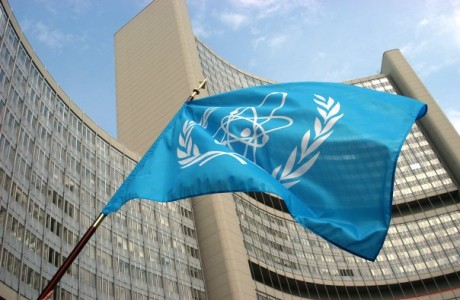Crude slipped as Islamic Republic of Iran agreed to let Western nuclear inspectors into the country, easing concern that the conflict over its nuclear program would disrupt Mideast supplies.
Prices fell as much as 0.7 percent after International Atomic Energy Agency Secretary-General Yukiya Amano announced the accord with Iran today in Vienna. The Organization for Economic Cooperation and Development said Europe’s debt crisis risks spiralling and seriously damaging the world economy.
“The Iran agreement took some tensions off the market and that’s what caused the oil decline,” said Phil Streible, a Chicago-based commodities broker at RJO Futures. “We also saw weaker OECD economic growth outlook which is weighing in on oil prices.”
Oil for June delivery slid 33 cents, or 0.4 percent, to $92.24 a barrel at 9:29 a.m. on the New York Mercantile Exchange. The contract expires today. The more actively traded July contract fell 27 cents to $92.59. Front-month futures are down 6.7 percent this year.
Brent oil for July settlement gained 17 cents to $108.98 a barrel on the London-based ICE Futures Europe exchange.
The agreement between Iran and the IAEA will be signed “quite soon,” Amano told journalists in Vienna after returning from Tehran, where the deal was reached yesterday. Negotiators are set to head to Baghdad tomorrow for a second round of negotiations over Iran’s nuclear program.
While IAEA inspectors regularly visit sites where Iran enriches uranium, the agency has been seeking more access to facilities suspected of hiding undeclared nuclear work. It’s the first time since 2007 that the Islamic republic, which says its atomic work is for peaceful purposes, has accepted an IAEA proposal to boost cooperation and allow wider inspections.
Oil prices rose earlier this year as tightening sanctions on Iran curtailed the country’s exports to Europe and raised the threat of a possible interruption of oil tanker traffic in the Persian Gulf.
The U.S., U.K., France, China, Russia and Germany will hold talks tomorrow with Iran, the second-biggest producer in the Organization of Petroleum Exporting Countries.
Oil also fell after OECD Chief Economist Pier Carlo Padoan said “the risk is increasing of a vicious circle, involving high and rising sovereign indebtedness, weak banking systems, excessive fiscal consolidation and lower growth.”
Such a downside scenario “may materialize and spill over outside the euro area with very serious consequences for the global economy,” he wrote in the organization’s semi-annual report on the global economy.
U.S. crude inventories probably rose 1.5 million barrels last week, a Bloomberg News survey showed before an Energy Department report tomorrow. It would be the ninth week of gains. The industry-funded American Petroleum Institute will release separate stockpile data today.



